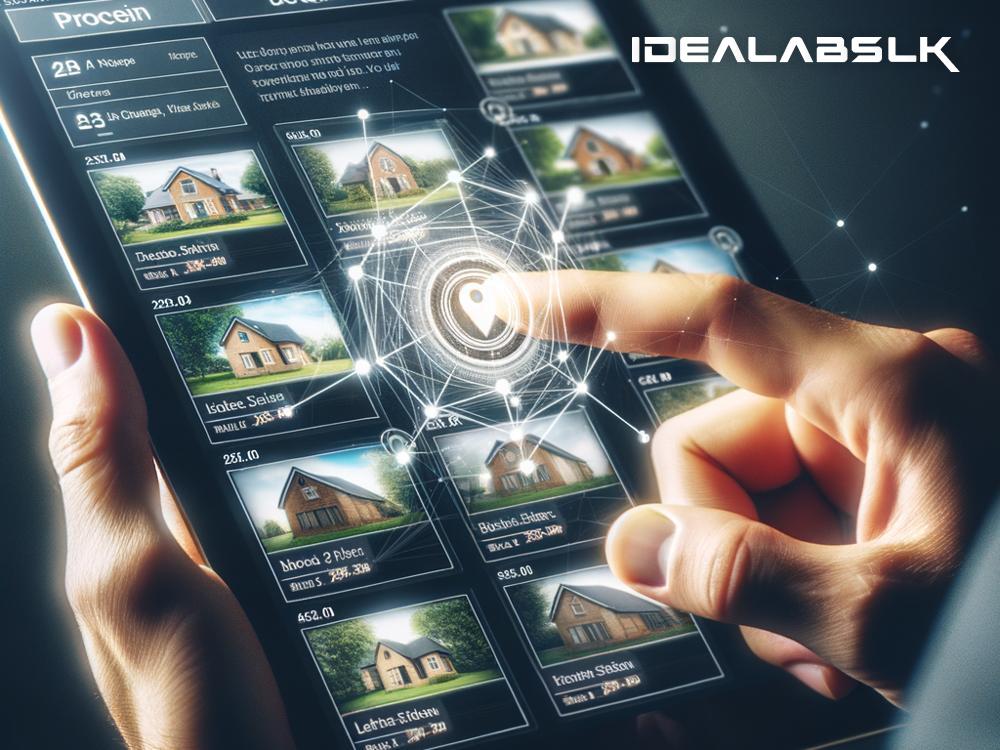Blockchain for Real Estate Data Validation and Verification: Simplifying the Complex
When you hear the term "Blockchain," what comes to your mind? Perhaps Bitcoin or other cryptocurrencies. But beyond the buzz of digital currencies, blockchain technology has a plethora of applications, especially in verifying and validating data. One industry standing to gain significantly from blockchain is real estate. Let's delve into how blockchain can transform the real estate sector by ensuring data integrity and security.
Understanding Blockchain in Layman's Terms
Before we dive into its applications in real estate, let's simplify blockchain. Imagine blockchain as a digital ledger or record book that is completely transparent and tamper-proof. Once information is recorded in this digital ledger, it cannot be altered or deleted. This record book is not stored in one central location but is distributed across a vast network of computers, which makes it highly secure and nearly impossible to hack.
The Real Estate Data Dilemma
The real estate industry involves a massive amount of data and documentation. From property titles and ownership records to agreements and transactions, the amount of paperwork is staggering. Unfortunately, this also means that the industry is susceptible to data manipulation, fraud, and errors. Here's where blockchain comes into play.
How Blockchain Solves the Problem
-
Immutable Records: Once property data, such as ownership details, transaction history, and titles, are recorded on a blockchain, they become immutable. This means that the information cannot be altered or tampered with, ensuring data integrity and trust.
-
Transparency: Blockchain technology promotes transparency. Every party involved in the real estate transaction, including buyers, sellers, and intermediaries, can have access to the same information, thereby reducing misunderstandings and conflicts.
-
Speed and Efficiency: Traditional methods of verifying property data involve a lot of paperwork and third-party services, which can be time-consuming and costly. Blockchain streamlines these processes by providing a single, verified source of truth, significantly reducing the time and costs associated with real estate transactions.
-
Reduces Fraud: The security features of blockchain make it extremely difficult for fraudsters to manipulate records. This can significantly reduce instances of title fraud, a common issue in the real estate sector.
Real-World Applications
Now, let's look at a couple of real-world scenarios where blockchain can revolutionize real estate data validation and verification:
-
Title Records and Transfers: Blockchain can maintain a permanent, secure, and unalterable record of property titles. This not only expedites title searches but also ensures accuracy, thereby eliminating title disputes and fraud.
-
Smart Contracts: These are self-executing contracts with the terms of the agreement between buyer and seller directly written into lines of code. Smart contracts on the blockchain can automatically enforce and execute the terms of real estate transactions, like releasing funds only when certain conditions are met, without the need for intermediaries.
-
Tokenization of Real Estate Assets: This refers to the process of converting real estate assets into digital tokens on the blockchain. This can open up investment in real estate to a wider audience by allowing fractional ownership and making it easier to buy and sell shares in properties.
Challenges Ahead
While blockchain holds tremendous promise for the real estate industry, there are challenges to its widespread adoption. Regulatory hurdles, the need for standardization, and concerns about the digital divide are some of the obstacles that need to be addressed. Moreover, the real estate sector, traditionally resistant to change, may need a cultural shift to fully embrace blockchain technology.
Conclusion
Blockchain technology offers a robust solution to many of the data validation and verification challenges faced by the real estate industry. By ensuring data integrity, reducing fraud, and streamlining transactions, blockchain can make real estate dealings more transparent, secure, and efficient. While challenges remain, the potential benefits of integrating blockchain into real estate cannot be ignored. As we move towards a more digitized world, the adoption of blockchain in real estate seems not just beneficial but inevitable. The future of real estate transactions, powered by blockchain, promises a level of security and efficiency previously thought impossible. It's a change whose time has come, paving the way for a revolution in how property data is verified and transactions are conducted.

